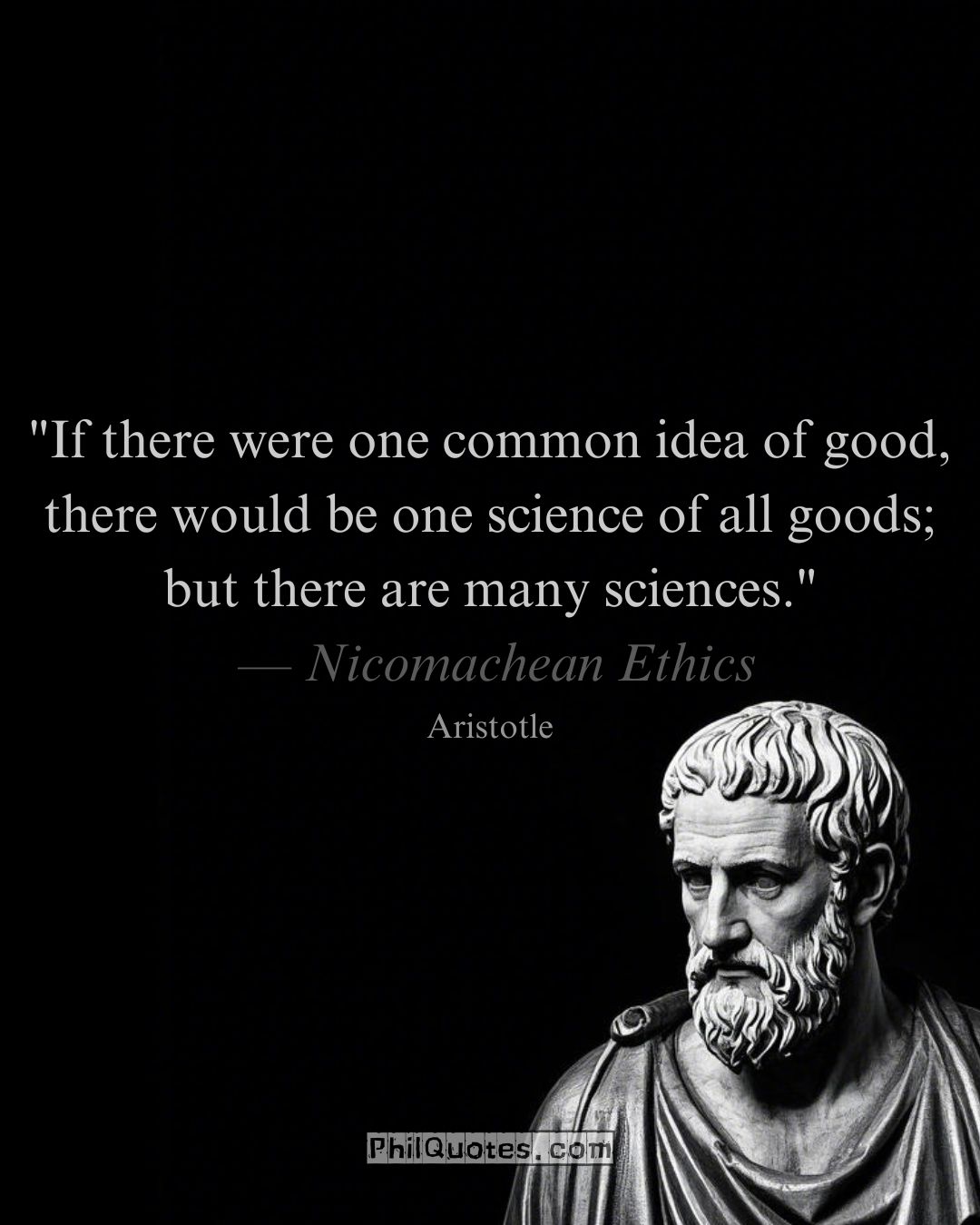
“If there were one common idea of good, there would be one science of all goods; but there are many sciences.”
— Aristotle, Nicomachean Ethics, Book I, Chapter 6
Simple Explanation:
Aristotle dismantles Plato’s theory of a single “Form of the Good.” He argues that different domains (medicine, architecture, ethics) pursue distinct goods (health, structural integrity, justice) — thus requiring specialized sciences. Like a chef, farmer, and poet each needing unique tools, “goodness” adapts to its purpose.
Real-World Connection:
① Tech vs Art →
A software engineer codes algorithms (good as efficiency) → a ceramic artist shapes clay (good as beauty) → both advance human life, but through irreducible disciplines.
② Urban Planning →
Traffic engineers optimize road safety (engineering good) → community activists demand public parks (social good) → integrated through polis welfare, not a monolithic “good.”
③ The Hidden Blueprint →
Aristotle’s teleological framework (“good” = function fulfilled) explains why:
- A knife’s good (sharpness) ≠ a parent’s good (nurturing)
- Economics (wealth distribution) ≠ Ecology (ecosystem balance)